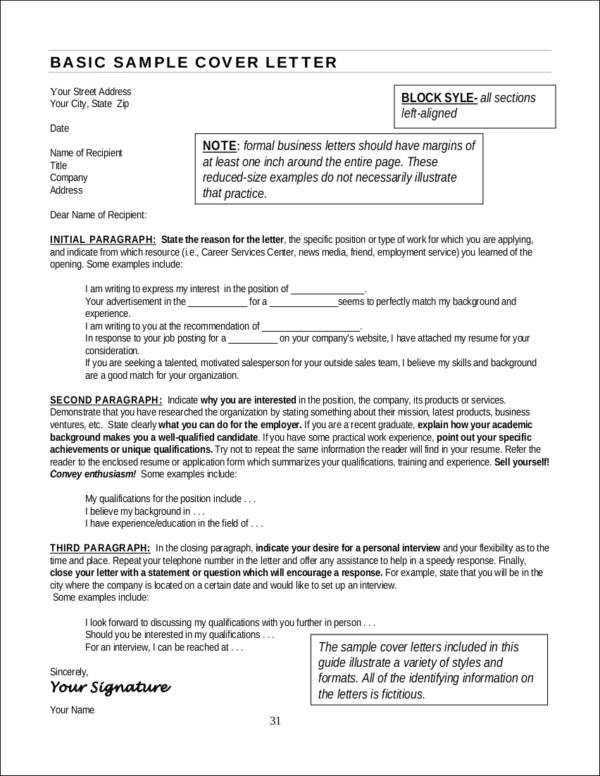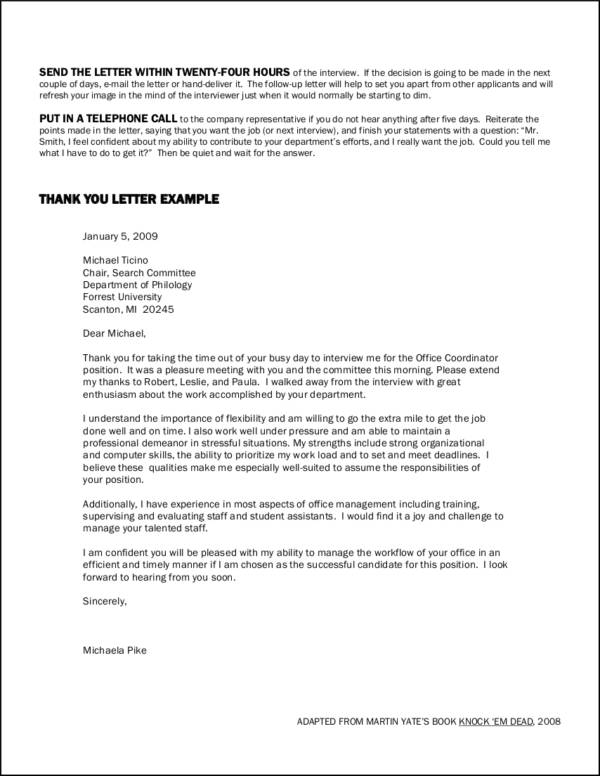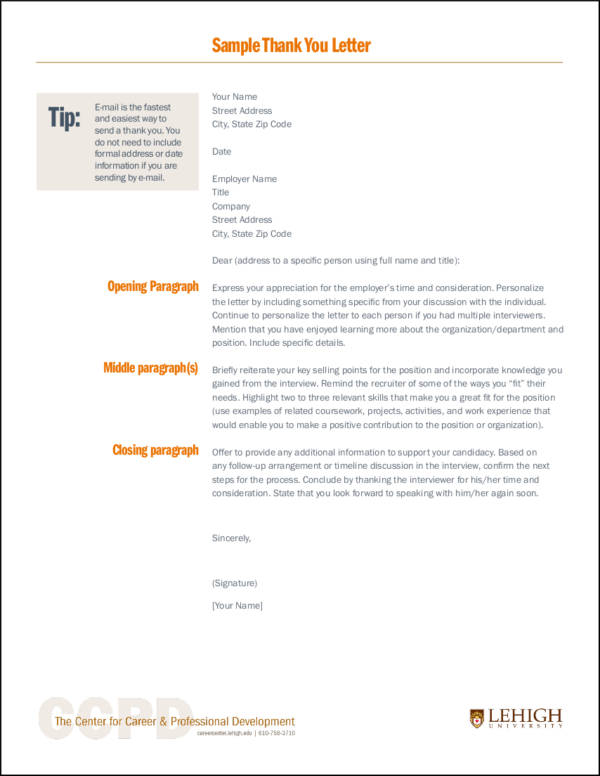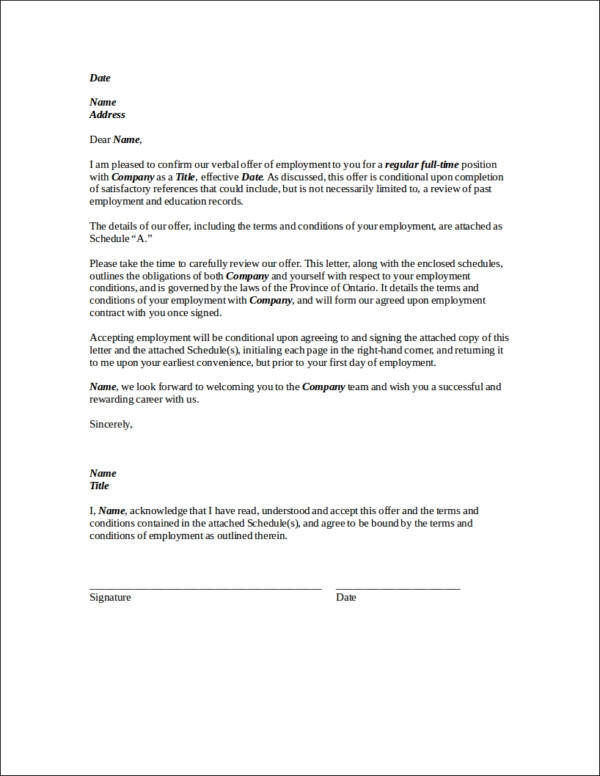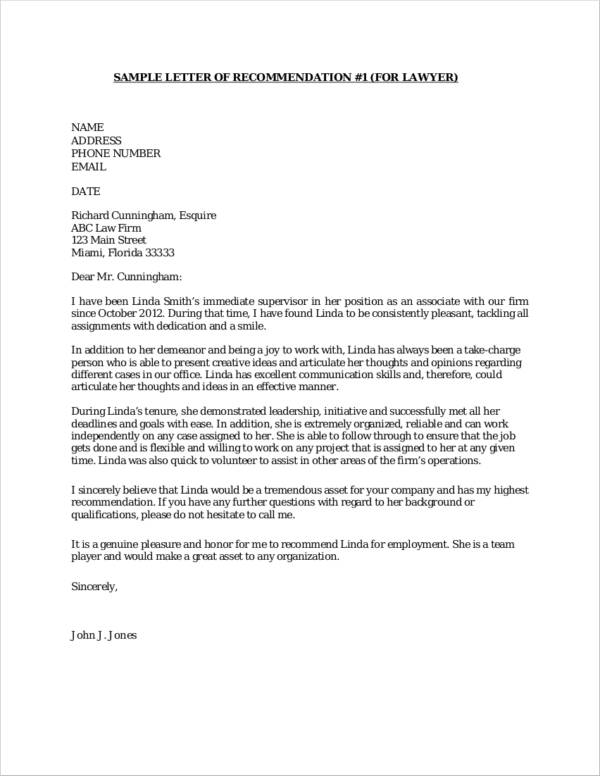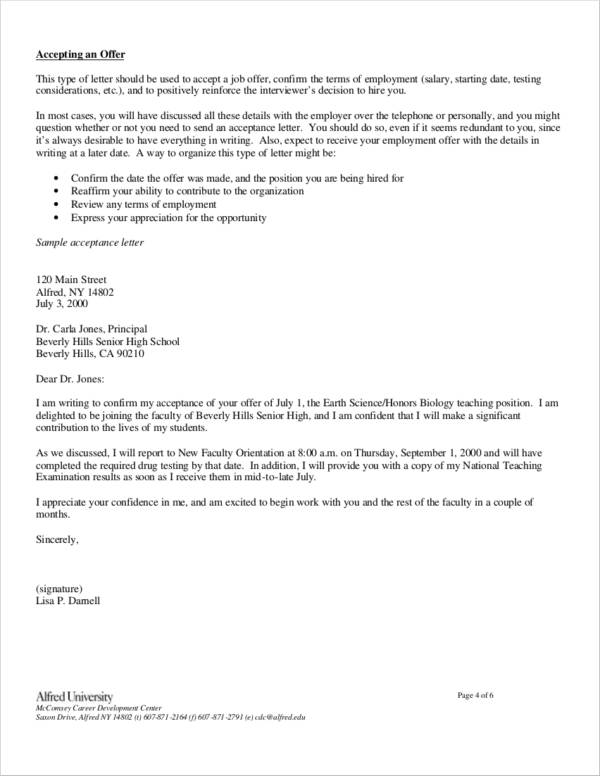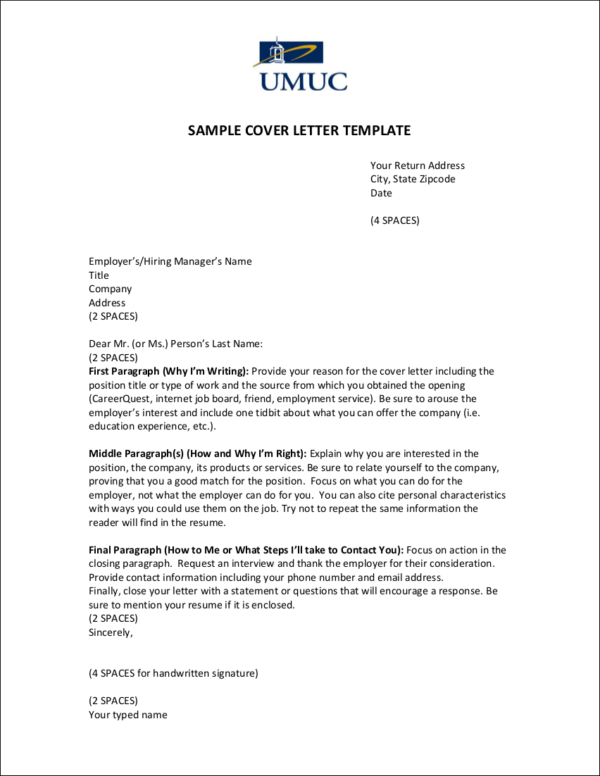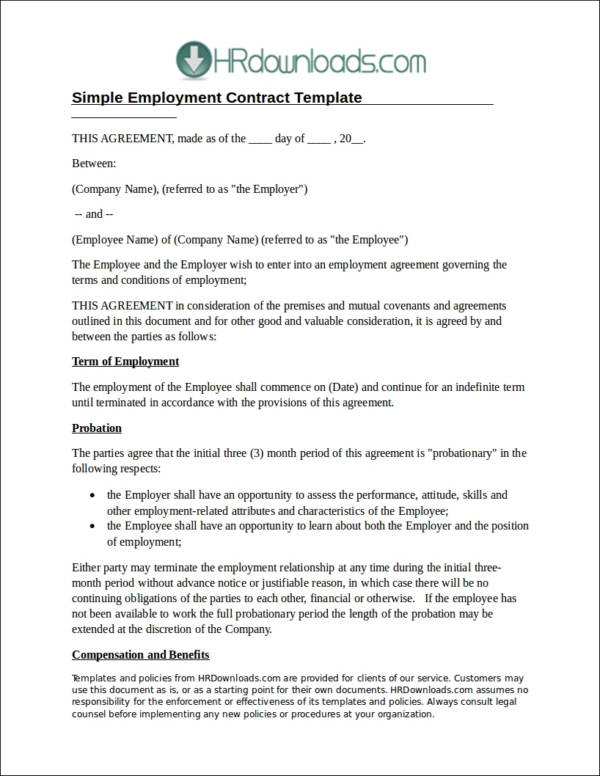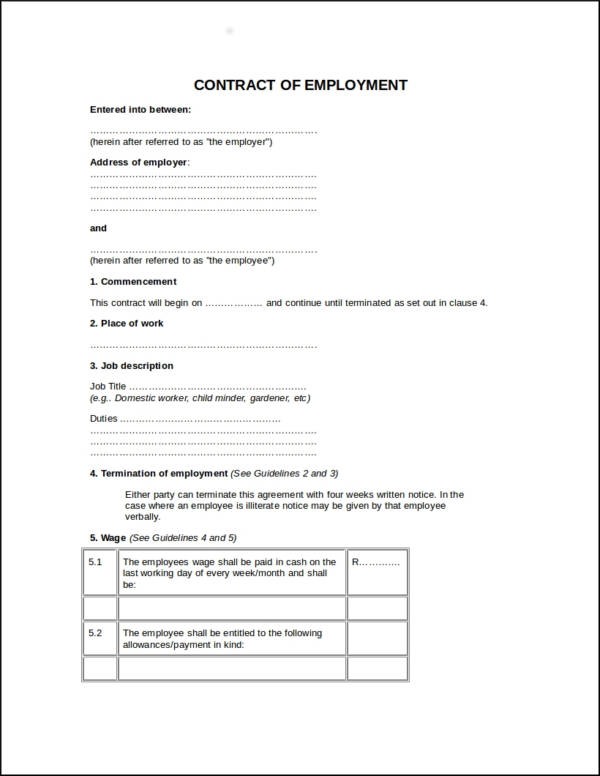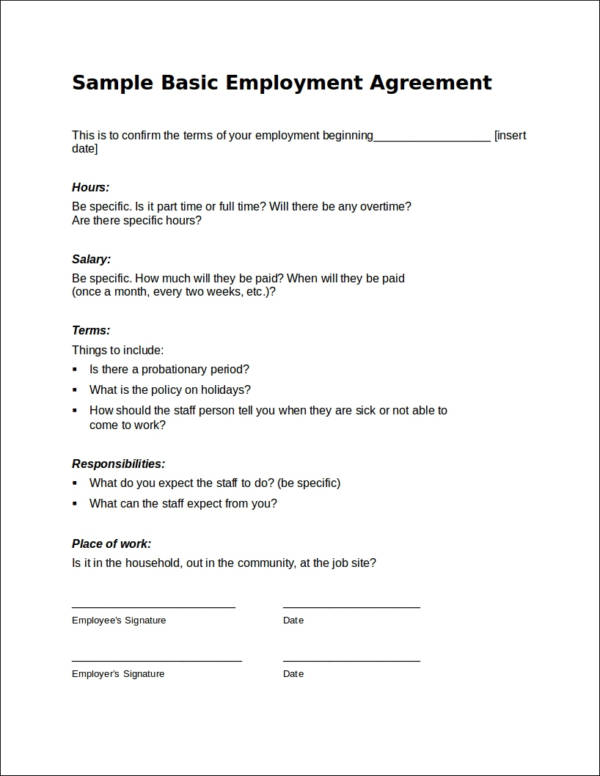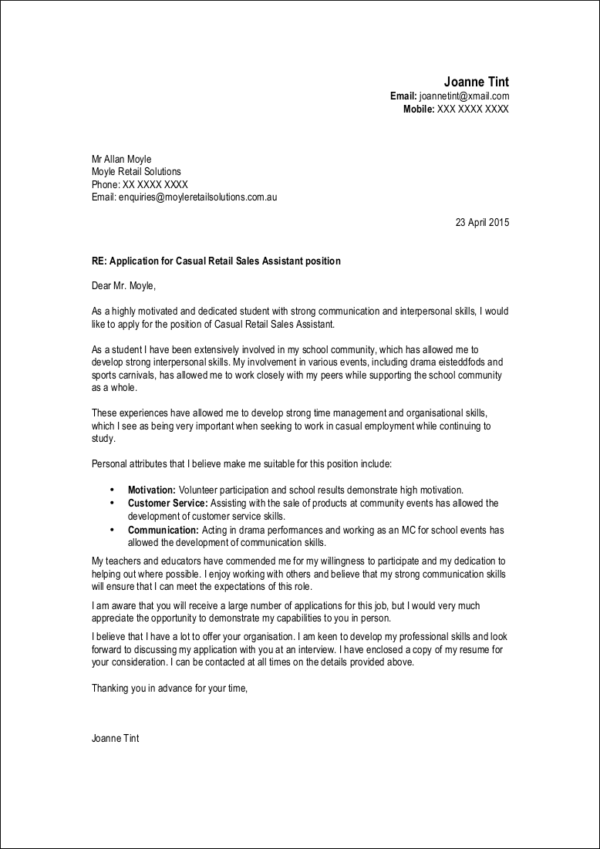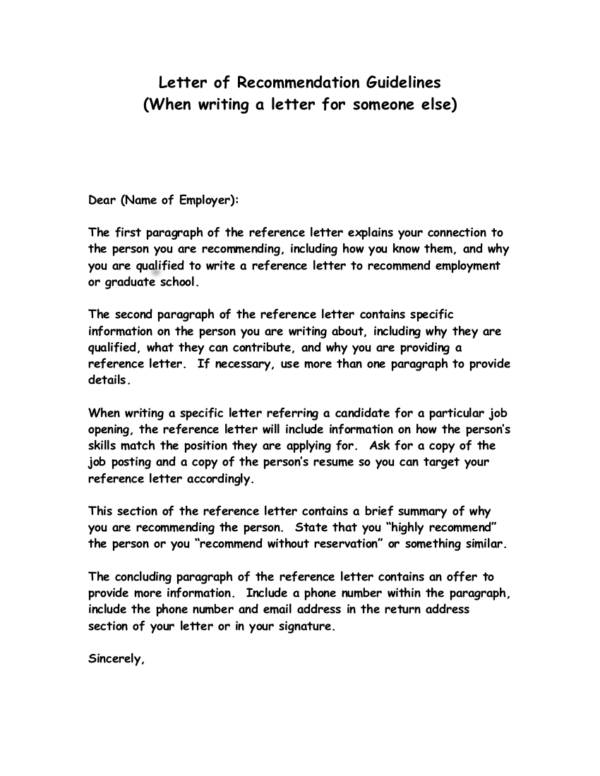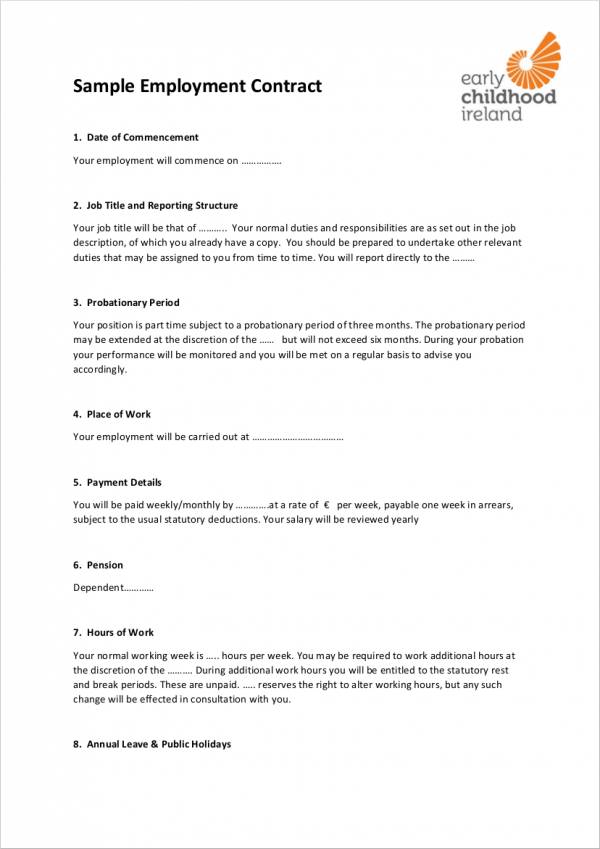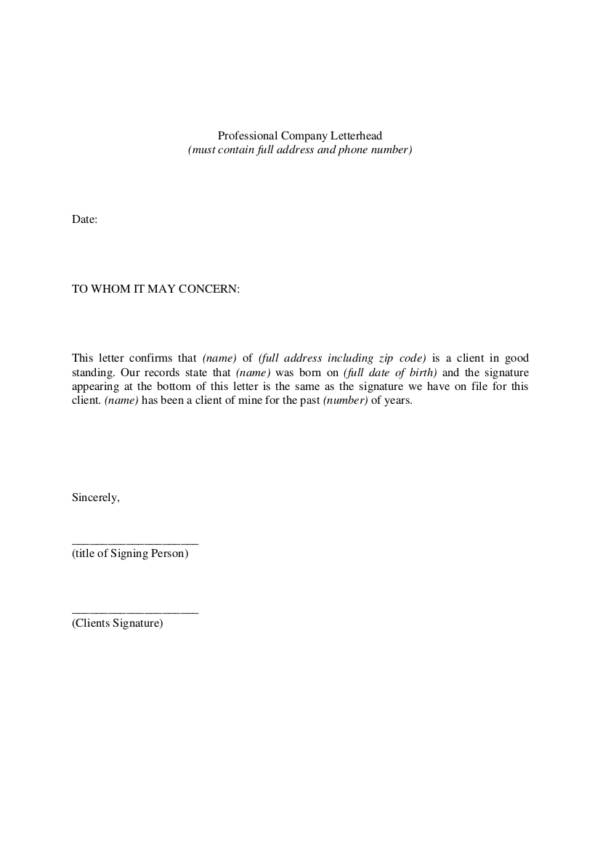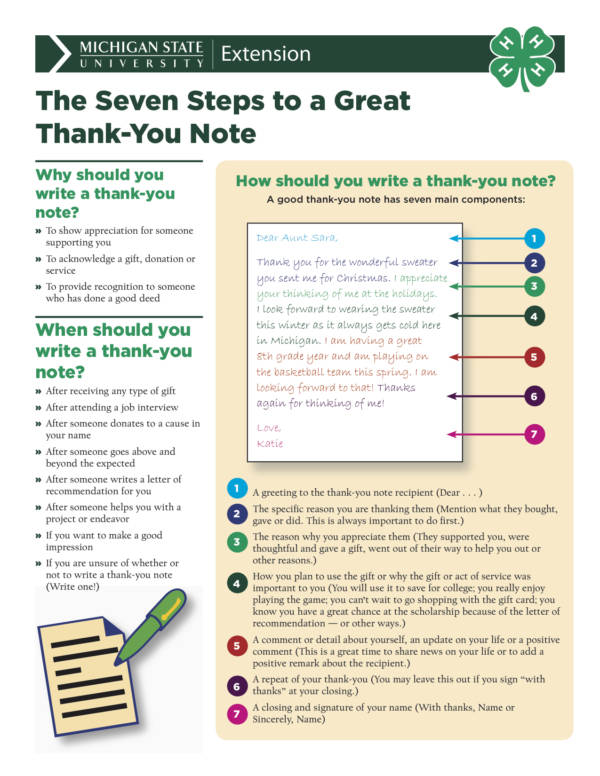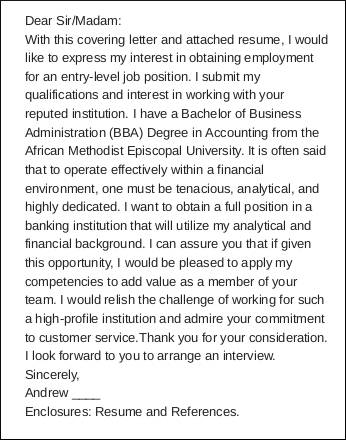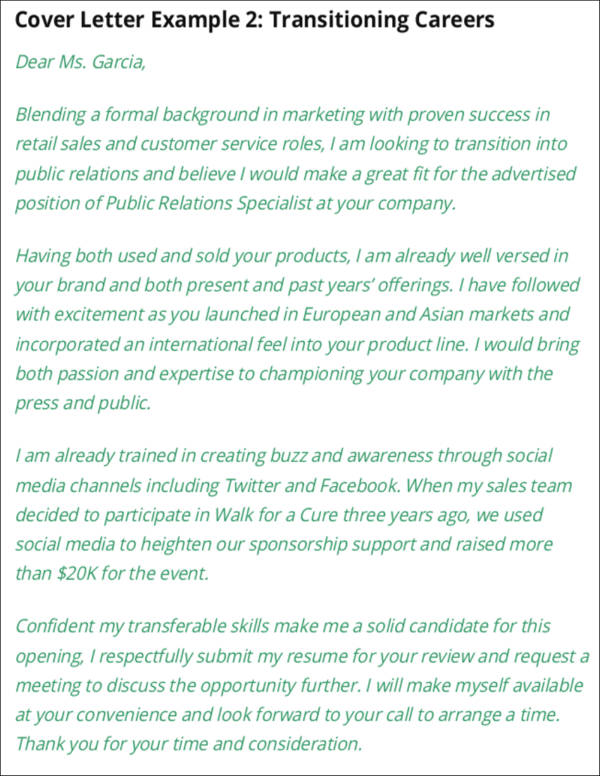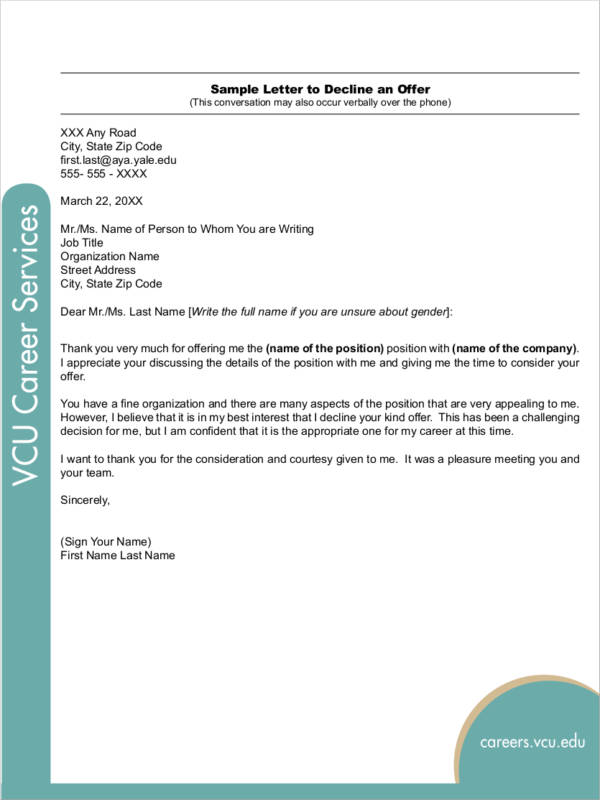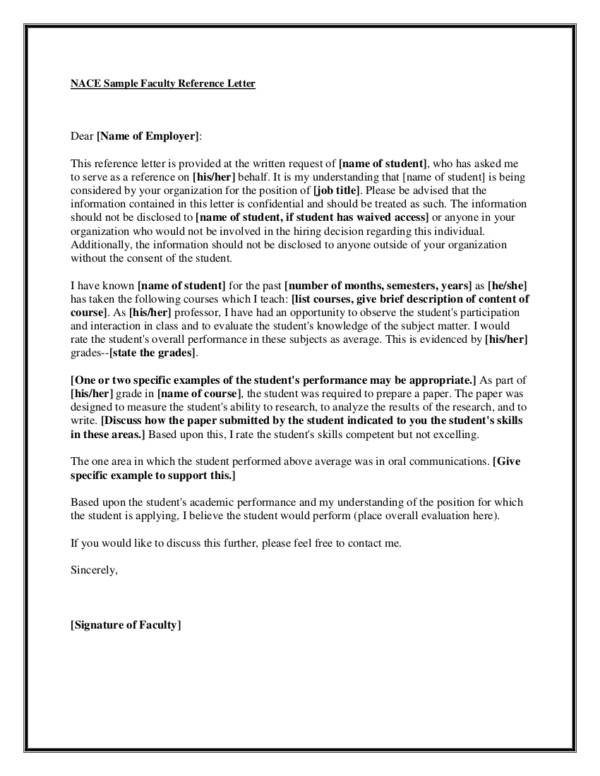When applying for any job or any position, it has been a practice that applicants write the hiring company or employer about their interest regarding the said job hiring or position. In addition to showing one’s interest about it, they also write about their qualifications, skills, and accomplishments, which becomes a basis if they deserve to be hired or not. You may also see free writing samples.
Employment writing is one of the important steps and challenges that every individual goes through in order to move forward and get the job that they want. Of course, it is still up to the hiring company or employer if they deserve to become part of that company or not. There are different types and styles of employment writing that applicants need to make. That and helpful writing samples and templates will be explored in this article to help you further understand what they are and why they are important.
Basic Sample Cover Letter
Interview Thank You Letter Example
Letter of Recommendation from Former Employer
What Sort of Things Do You Write for Employment?
The things that you need to write for employment varies depending on what you prefer to make or what the hiring company or employer wants you to make and submit to them. The sort of thing that you write for employment are application letters, cover letters, thank-you letters or follow-up letters, acceptance letters, recommendation letters, and employment contracts.
1. Application Letters
When it comes to applying for a job, an application letter is always on top of anyone’s list. This is primarily what most companies or employers would require from an applicant because it provides them with detailed information about the applicant, their qualifications, related experiences, and achievements. Although the pattern used for writing an application may be the same for all types of jobs, the contents vary depending on how the applicant writes it and how they sell themselves in the letter. An applicant’s confidence is also reflected in the contents of their application letter and this is where most employers base their judgment if the applicant is hirable or not.
2. Cover Letters
A cover letter is similar to that of an application letter in a way that both helps an applicant introduce themselves to the hiring company or employer. Cover letters and application letters are often used as the same words, but they actually have a slight difference to them. A cover letter simply just provides an introduction about the applicant and still needs to be accompanied by a resume to be fully convincing. An application letter, on the other hand, is a detailed introduction about the applicant. Some cover letter examples are teacher cover letters, nurse cover letters, and case manager cover letters.
3. Thank-You or Follow-Up Letters
When is the best time to send a thank-you letter or a follow-up letter to your interviewer? They say the best time would be two days after the interview. This way you it won’t seem like you are too impatient for the result of your application. When writing this kind of letter, make sure that you do so by making sure that it is free from any sorts of errors, and further emphasize one’s skills and qualifications for the job without sounding too pushy or too assertive. Also keep in mind to thank the interviewer for the chance to get an interview as well as for the time spent reading your letter. Some examples are general thank-you letters, interview thank-you letters, and client thank-you letters.
4. Acceptance Letters
When you are finally offered the job or position you had applied for, it is just and right that you send them a letter stating that you formally accept the offer. An acceptance letter includes the details of the offer to confirm if they are correct, like your start date, work hours, salary, benefits, and others. This is also the right time for you to ask questions about the position. When writing a letter of acceptance, you should always start with a statement saying how delighted you are about the offer and end it by still showing interest in becoming a member of the company or organization.
5. Recommendation Letters
A recommendation letter is always written by someone who knows the applicant well. The favorable candidates for writing recommendation letters are the applicant’s previous colleagues, supervisor or manager, and college professors. Although family members know the applicant well, as much as possible they should not be asked to write one’s recommendation letter as it may seem biased because of their relationship. Even if a recommendation letter is not something that an applicant would write, it is still an important document for employment.
6. Employment Contracts
Employers need to provide an employment contract to every applicant who gets hired for the job before they actually start working in the company. Applicants do not write employment contracts, but they must read carefully the terms and conditions in it before agreeing and signing the said document. Employment contracts are important as this is one way for applicants to know if a business of an employer is legit and is doing business accordingly. If you land a job that did not present you with an employment contract, then you might need to consider the kind of employment that you are in.
Employment writing is never easy at first, that is why it is a challenge for a lot of applicants, especially those who have no idea how it is to sell oneself to a hiring company or employer. Also, to add up to the level of difficulty that applicants are already experiencing are the changing trend and formatting required in writing for employment. But you can always keep track and be on top of these challenges by checking out related topics like Professional Thank-You Letter Samples and Templates, and What You Need to Know about Employment Contracts.
After Interview Sample Letter Template
Sample Employment Agreement Contract Template
Letters of Recommendation from Supervisor
Sample Thank-You Acceptance of Job Offer Letter
Sample Cover Letter Template
Simple Employment Contract Template
Contract of Employment Sample Template
Uses and Importance of Employment Writing
Why do you need to write anything to get employment? Why is it given that much importance? Have you ever asked yourself these questions? Writing for employment may seem easy when you just look at it, but it is really not that easy. It takes time, knowledge, and a lot of positive scripting to be able to end up with one that can help you get that desired position. The following are some of the reasons why writing for employment is important, as well as its uses. You may also see Tips to Writing Recommendation Letters That Work.
- It allows job seekers and applicants to introduce themselves to companies or employers who are looking for people to hire and fill in vacant jobs.
- Aside from helping applicants introduce themselves, it is also used by a lot of employers as basis for selecting applicants to interview whom they think are best possible fits for the job. You may also like Job Acceptance Letters.
- It makes the selection process seem unbiased due to the fact that hiring companies rely on the application letter and resume that they have to judge if the said applicant deserves to be interviewed, instead of having their judgment clouded by the applicant’s appearance.
- An applicant can also build a good first impression to the hiring company or employer based on the things that they wrote and how they position themselves in the letter. You may also check out How to Write an Application Letter for Employment.
- It provides a way for applicants and job seekers to convey their thanks to the person who interviewed them and at the same time do a follow-up on the outcome of the interview.
- It is also professional to officially confirm one’s acceptance of a particular job offer, and writing a letter about it will further help one make a good impression to the company or employer that hired them. You might be interested in Secrets to Writing a Great Cover Letter.
- Recommendation letters provide support to one’s claims about their skills, qualification, related experiences, and achievements, as they are written by people who know or who have worked with the applicant.
- Employment contracts helps establish trusting relationship between an employer and a prospective employee because the contract serves both parties’ commitment to their share of responsibilities to fulfill the contract.
A few samples that you might be interested in are accessible on our website. If you need help with writing for your employment or if you simply just want to learn about them, then the samples and templates we offer would be good for you. To name a few are application letter formats, cover letters for job applications, and job acceptance letters.
Basic Employment Contract Template
No Work Experience Sample Cover Letter
Sample Employment Recommendation Letter
How to Write an Application Letter
Learn to write an application letter by following these simple steps that we have gathered below.
- The very first things you need to do before starting your application letter is to look up the details of the company or employer for the job you are planning to apply for. Also do your research on the specific job that you are applying for so that you would know what to put in your application letter. You might want to check out some application writing samples.
- Next, start making a draft or an outline of your application. You can also download application letter templates online so that it will be easier and more convenient for you to make one. If you do not wish to use a template, you can always use it as a guide for making your own.
- You need to use a formal letter format when writing an application letter. Either on a draft or on the template, start writing down the contents of your letter. This is where your research will come useful.
- Always start your letter with the appropriate salutation. If you know the name of the person to whom the letter should be addressed to, use “Dear” followed by the last name of that person. If you do not know who specifically to address your letter, use “TO WHOM IT MAY CONCERN” followed by a colon and not a comma.
- The body for your letter should have three paragraphs. The first one is to introduce yourself, the second one is to tell about your specific skills and qualifications, and the third one is a summary of what you have discussed so far. Yo may also see summary writing samples.
- Incorporate your skills and qualifications to the qualifications required by the hiring company. This way you can make a good content that will make sense to the employer or interviewer who is going to read it.
- Close your letter appropriately and always write your complete name and affix your signature to it.
- Mention any attachments that you have together with the application letter.
- Review your work. Do a spelling check and grammar check to make sure that your application letter is of high quality.
- Once you are satisfied with it, you can either send it via email or print a copy and send through regular mail.
Need more reference? We’ve got you covered. Check out our website to view and download a variety of samples and even templates. Choose from 32 application letter samples and templates or from our collection of basic application forms. Check them out now!
Printable Sample Employment Contract
Sample Professional Recommendation Letter
Printable Thank-You Letter Example
Formal Cover Letter Sample for Entry-Level Job
Career Transition Cover Letter Sample
Thank-You Letter Sample to Decline an Offer
Sample Employment Reference Letter from Previous Professor
Tips on How to Write Effective Application Letters
After learning how to write an application letter, it is a must that you also take time to learn about some very useful tips to help you write them better and help you make them effective.
- Although not necessary, it is good to have a letterhead on your application bearing your name, address, and contact details. This is one way that you can make the hiring party remember you.
- A good application letter will always look neat and professional. To achieve that look, you will need to follow the format for writing formal letters.
- The paper size, layout, and orientation are important for writing application letters, so take time doing research on the favorable paper size, layout, and orientation to use.
- Set your paper margin to the same size for all sides. This will give it a framed and professional look, which is preferred by a lot of employers.
- Write clearly and concisely in your letter. You don’t need to use difficult words just to give a good impression. Simple words can never get you wrong and can easily be understood by anyone who reads it. You might also be interested in technical writing.
- Do not sound too assertive. Write in a way that you can tell about yourself in detail without sounding like you’d kill just to get the job.
- Do not exaggerate or overexaggerate when telling about yourself, your qualifications, or your achievements. This is a major turnoff for any employer and it may just be the reason why you will be turned down. Check out job application writing samples for reference.
- Personalize your application letter as much as you can. Avoid using generic sentences or paragraphs that are used in most examples. Doing so will help you make a good impression.
- Always make it a habit to proofread your work, regardless of what type of letter you are writing. You might just not be praised for the perfect grammar and zero spelling errors, but it would be a point against you if commit any spelling or grammar errors. It pays to double-check.
Other related articles that you may also find useful are How to Avoid Getting Your Cover Letters Trashed and Cover Letter Tips for First Time Job Seekers.
Advantages and Disadvantages of Employment Writing
The following is a list of advantages and disadvantages of employment writing both for applicants and employers.
- Job applications can help you get the attention of the company you are applying by writing down your skills, qualifications, and related experiences.
- No matter how you write something for employment, it will always turn out to be something the same or generic. It will always contain the applicant’s name, the reason why they are applying, their qualifications, and so on. You may also see how to write a requisition letter.
- An applicant is able to tell about themselves in the most creative and positive way that they can think of. This in turn would make the reader want to flip to the next page and check the applicant’s resume. You might also want to take a look at resume writing for when you need to make one.
- Spelling errors and grammar errors are a big turnoff. Even if you just missed a period or a comma, that will be taken against you and you might lose all of your chances for getting the job.
- Through employment writing, one is able to share or impart a piece of their personality in writing and convey it to the reader. This could turn out to be your chance to get invited to an interview.
- Written applications and even emailed applications will add up to the paperwork and tasks that an employer or recruitment needs to attend to. There might be chances when not all of the qualified candidates are entertained right away.
- A customized cover letter will let you explain your interest with the job and what you can contribute or do for the company if they hire you.
- Through employment writing, employers are able to get hold of information that can help them do a background check for a specific applicant.
- Writing for an employment is seen by many as their chance of gaining advantage over all the other applicants who are applying for the job. If you are good at explaining yourself and using positive scripting, you will be able to stand out or you might just impress the reader.
Related Posts
FREE 20+ University Application Samples in MS Word | Google Docs | PDF
FREE 29+ Student Application Form Samples in PDF | MS Word
FREE 21+ Administrative Application Samples in MS Word | Apple Pages | PDF
FREE 21+ Teacher Application Samples in MS Word | Apple Pages | Outlook | PDF
FREE 25+ Transfer Application Samples in MS Word | Apple Pages | PDF
FREE 23+ Participation Application Samples in MS Word | PDF
FREE 14+ Patient Application Samples in MS Word | PDF
FREE 21+ Eligibility Application Samples in PDF
FREE 20+ Travel Application Samples in PDF | MS Word
FREE 25+ Sponsor Application Sampales in MS Word | Google Docs | Apple Pages | PDF
FREE 23+ Candidate Application Samples in PDF
FREE 33+ Committee Application Samples in PDF | MS Word
FREE 37+ Supplemental Application Samples in PDF | MS Word
FREE 37+ Product Application Samples in PDF | MS Word
FREE 33+ Visiting Application Samples in PDF | MS Word

